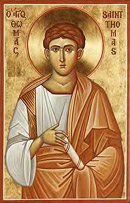DOWN HOME: About time for a technology sabbath
Posted: 10/19/07
DOWN HOME:
About time for a technology sabbath
My buddy Greg had a really bad day.
He woke up in a hotel far from home, with a slate of activities stretching out before him. He got busy, checked out of the hotel and took off.
Unfortunately, he left his briefcase in the parking lot. Worse still, by the time he realized what had happened and returned to the hotel, somebody else had driven over his briefcase, crushing his cell phone and laptop computer.
He called around asking for phone numbers because, like me, he doesn’t memorize or write them down anymore. His cell phone stored them all. Until his phone went to the big cellular relay station in the sky.
My pal Ken had an almost-as-bad day.
His cell phone still worked, but his computer crashed. I was there. It went mouse-up dead.
He’s a conscientious guy and did a pretty good job of backing up material. But weeks later, he’s still backtracking, trying to round up bits and pieces of information that floated off to oblivion when that blasted computer recorded its last data entry.
My wife, Joanna, had a bad morning.
The power went off in her office. And, you guessed it, her computer stopped working. The whole place practically shut down.
She ran errands and got an early lunch while the folks from the power company got the electricity flowing again. But her incapacitated computer blew a big hole in her day.
In a few weeks, I’m heading to Guatemala on a mission trip with some other members of my church. At least for most of every day, I won’t have computer access and cell-phone coverage.
To tell you the truth, I haven’t figured out if that’s good or bad. Just like I’m not sure if I love or hate technology.
On the up side: Communication keeps Jo and me connected to our daughters. Lindsay lives in Florida, and Molly is a student at Baylor. But one or the other of us communicates with them almost every day—at least several times a week. We don’t feel nearly as distant as the miles that separate us.
Also, work is more accessible. Like right now: I’m writing a column while somebody fixes my flat tire. No months-old magazines for me; I’m doin’ bidness.
But laptops and cell phones also keep us so connected to work and other urgent distractions that we can lose track of the truly important.
You know one definition of anything that ends with “-holic” is that you sneak off to enjoy it, and you hope nobody catches you. That includes folks who check e-mail during church and call the office to check voicemails between dinner and dessert.
Maybe we’d all be better off if we took a “technology sabbath.” How about leaving the laptop in the briefcase and quit checking voicemail?
Maybe we’d find time to hear the voice of God and the voices of the people we love.
–Marv Knox



